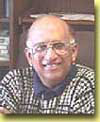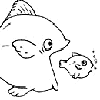Industrial AutomationWhat next? And who?
The original versions of this article was published in |

Who will be left? Emerson vies for industry leadership, with Fisher/Rosemount, now Westinghouse as additive to the other pieces, Intellution for software, and a smattering of other pieces. Siebe has grabbed the leadership spotlight, with earlier acquisitions of Barber-Colman, Robertshaw and the then independent but ailing Foxboro which has blossomed under Siebe stewardship. Now Siebe has acquired Wonderware and APV and most recently (June '98) Eurotherm. The linkage of Barber-Colman, ERO and Eurotherm gives Siebe undisputed worldwide leadership in temperature controllers, the platform for new growth in vertical markets.
Elsag Bailey looked like a comer for a while, but Finmechanica did not have the stamina for a grueling race, and one of the leaders will end up with Bailey in their pot. Rumor has it that Bailey is part of an all-or-nothing sale, but it is clear that whoever buys the chicken, will sell off the unwanted pieces. It will be like General Signal selling off the once respected Leeds & Northrup - once a leader in Recorders and pH and several niche markets, but now only a pruned product portfolio in the Honeywell basket.
And what will become of Honeywell? Can they survive independently against the Siebe and Emerson lineups? They bravely forged a foray into PLCs, with their Solid State Controls acquisition, which was quickly aborted. They then bought into A-B ControlNet, as a shortcut into the I/O networking business. But, this will probably only hasten their being swallowed up by Rockwell, who are ready, willing and able to be a surviving player by parlaying their Allen-Bradley PLC leadership into a European role through acqusition of Sprecher & Schuh, a puny pawn in Europe against the mighty Siemens. Then there is Groupe Schneider, a conglomeration of the French Telemechanique, Merlin-Gerin and April, and then gaining a position in North America through acquisition of Square D and Modicon.
The Japanese do not know how to grow by acquisition, so they try to compromise with joint ventures. But, in a fast-moving global environment, where crisp decision-making is paramount, consensus-orientated JVs never reap rewards and collaborations like Johnson-Yokogawa are doomed from the start.
Which leaves us with the remaining mid-size players - like Moore Products, bravely winning small battles with their APACS mini-DCS. At their couple-hundred-million size, they are "too big to be small, and too small to be big". The slightest mis-step will cost them in earnings and market-cap and they will end up as carnage in the catalog of the carnivore conglomerates.
  See also The Urge to Merge (Sep. 99) See also The Urge to Merge (Sep. 99)
|
Return to Index of all JimPinto Writings

 Return to JimPinto.com HomePage
Return to JimPinto.com HomePage
If you have ideas or suggestions to improve this site, contact: webmaster@jimpinto.com
Copyright 2000 : Jim Pinto, San Diego, CA, USA
